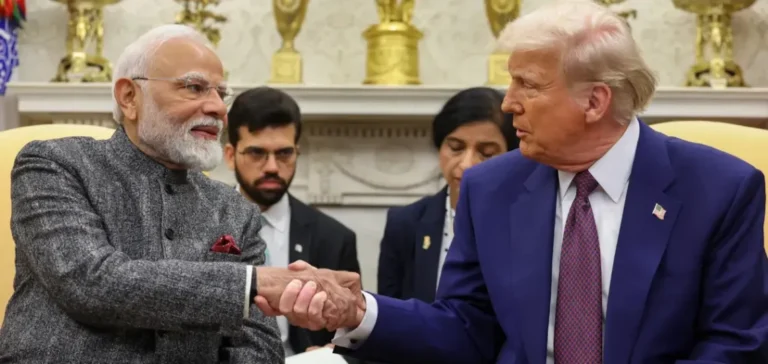United States President Donald Trump stated that Indian Prime Minister Narendra Modi had pledged to halt Russian oil imports. The announcement comes as Washington escalates its efforts to curtail Russia’s energy revenues in response to the ongoing war in Ukraine.
Trump said Modi personally assured him of the move, describing it as a “big stop” and noting that the phase-out would occur “within a short period of time.” The statement aligns with the Trump administration’s broader strategy to pressure Moscow economically by targeting its energy exports. Similar appeals have been made to other key buyers of Russian crude, including China and Japan.
Washington intensifies energy pressure strategy
India, the second-largest Asian importer of Russian oil, has continued to purchase discounted crude since the conflict began. An Indian government spokesperson stated that talks with US authorities were ongoing and that consumer price stability remained a national priority.
The Kremlin responded by claiming that Western attempts to limit access to Russian oil violated the principles of free trade. A Chinese spokesperson echoed this position, describing energy cooperation with Russia as “legitimate economic activity.”
Conflicting economic interests between strategic allies
Trade tensions between the United States and India have been exacerbated by the introduction of 50% US tariffs on Indian goods, including a 25% surcharge on transactions involving Russian entities. The Trump administration has presented these tariffs as retaliation for New Delhi’s continued energy ties with Moscow.
India has rejected accusations of double standards, pointing to ongoing economic exchanges between Russia, the US, and European countries. The Indian government defends its energy policy as essential for sustaining growth, citing the need for access to affordable crude supplies.
Fragile balance between diplomatic pressure and energy reliance
Russian President Vladimir Putin reiterated that Russia remained one of the world’s largest oil producers despite imposed restrictions. He denounced the use of “unfair competition mechanisms” at an energy forum in Moscow.
The European Union and the United Kingdom recently lowered the price cap on Russian crude from $60 to $47.60 per barrel. The measure, introduced in late 2022, aims to reduce Russia’s income while maintaining market stability. Despite these efforts, Russia continues to earn significant revenue from hydrocarbon exports.






















